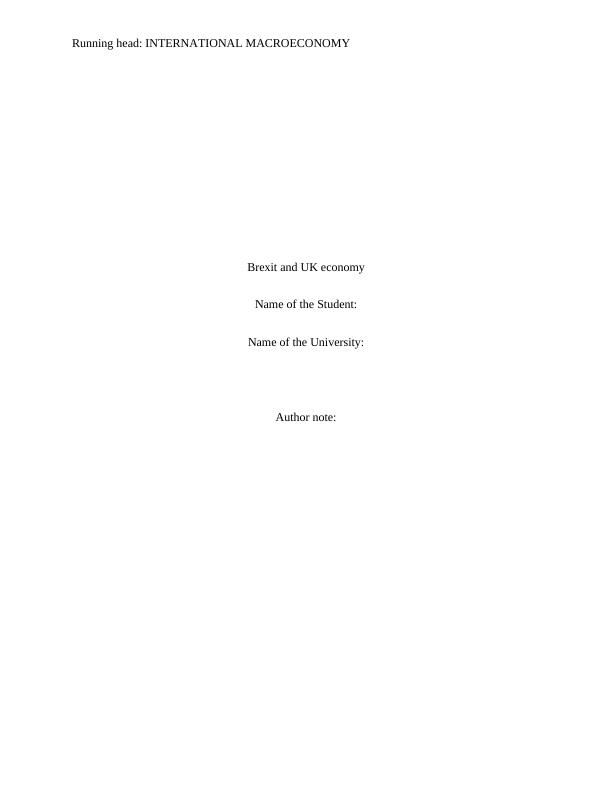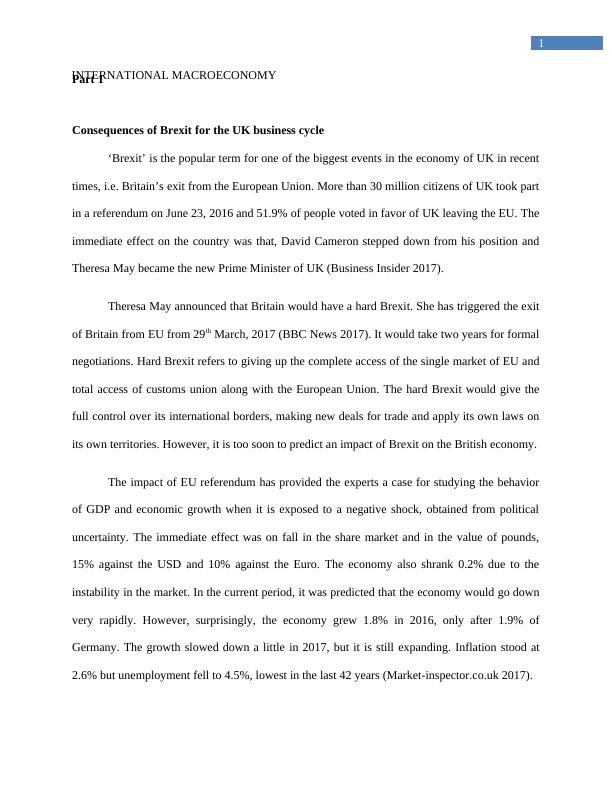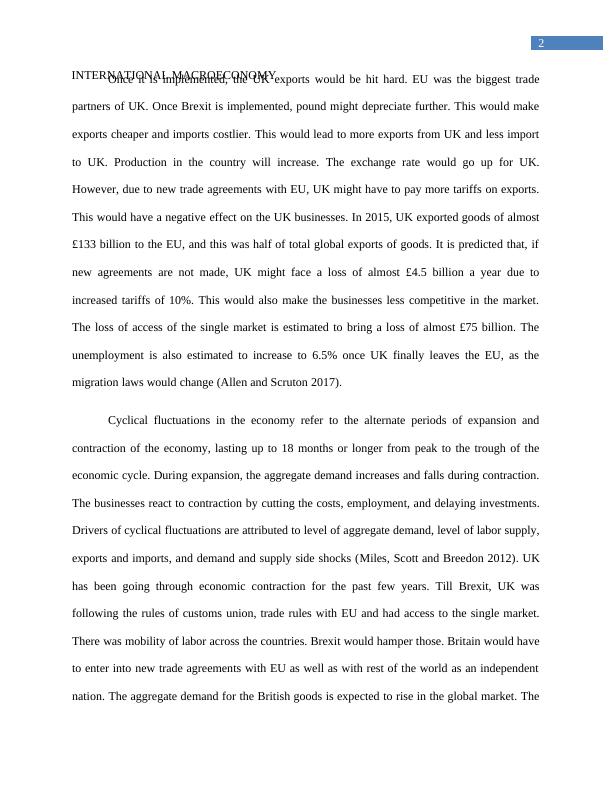ECON3008 - Understanding the International Macro-economy
7 Pages1968 Words68 Views
university of southampton
International macroeconomics (ECON3008)
Added on 2020-02-24
About This Document
ECON3008 - Understanding the International Macro-economy assignment, we will discuss about the UK and the economy of the UK in recent times,i.e. Britain’s exit from the European Union. More than 30 million citizens of the UK took part in a referendum on June 23, 2016 and51.9% of people voted in favor of the UK leaving the EU.
ECON3008 - Understanding the International Macro-economy
university of southampton
International macroeconomics (ECON3008)
Added on 2020-02-24
ShareRelated Documents
End of preview
Want to access all the pages? Upload your documents or become a member.
Potential Economic Consequences of Brexit on British Economy, with a special focus on the Dairy Industry
|12
|2862
|194
Impact of Brexit on HR Practices - Assignment
|12
|2471
|149
Brexit impacts on Foreign Investment
|6
|1280
|298
Being outside the EU decreases the bargaining power of the UK
|9
|2813
|136
History of Brexit
|10
|868
|423
ANALYSIS RELATED TO BREXIT EFFECT ON AEO SCHEME 12 ANALYSIS RELATED TO BREXIT EFFECT ON AEO SCHEME Name of the University Author Name
|16
|4194
|292



